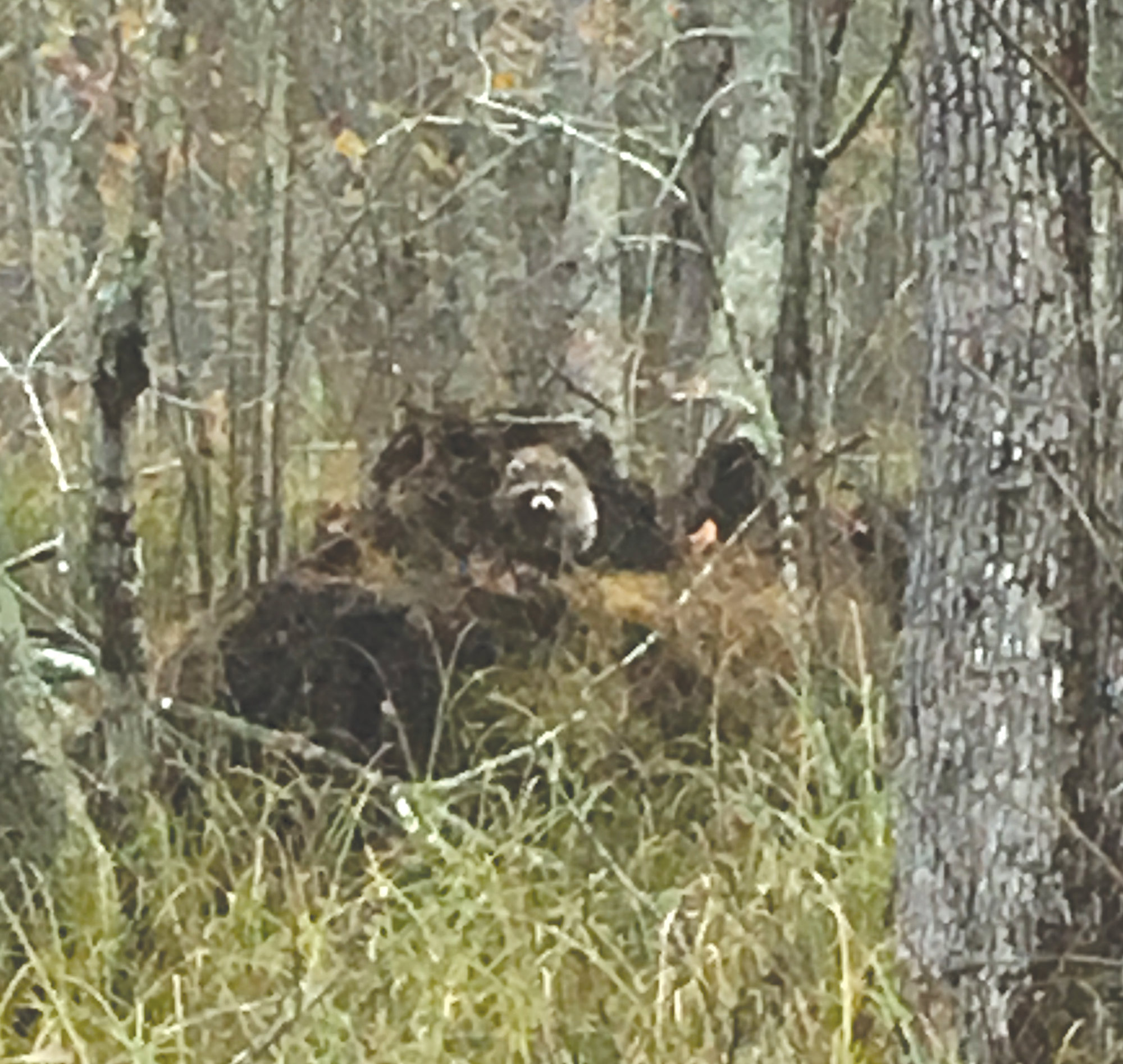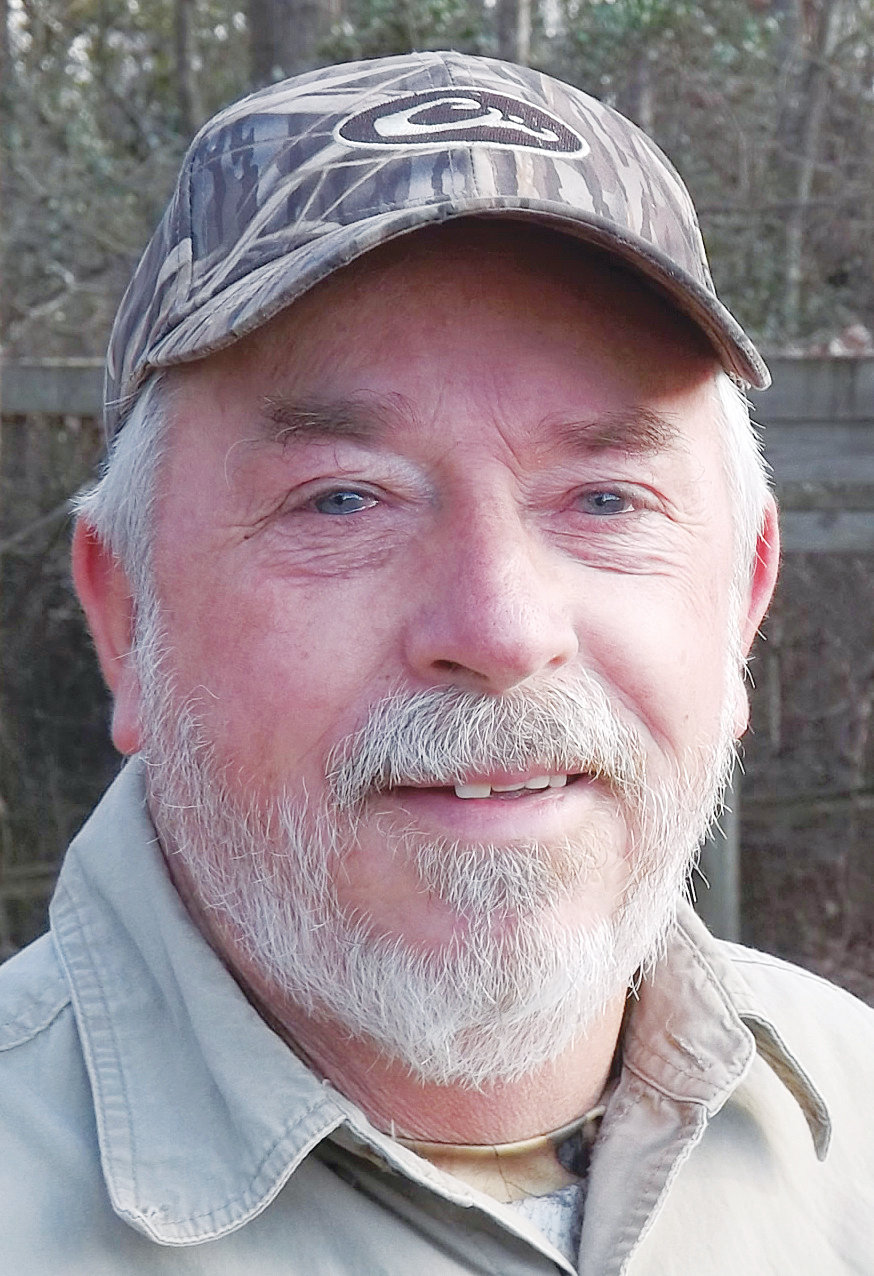A wetland wonderland

Wetland habitats benefit a variety of wildlife such as this curious raccoon.

Special to The Sumter Item
The three-quarter moon was down, and the flooded woods were dark and silent. I stood quietly in the shin-deep water, letting my senses adjust to the surroundings. I had stopped for a moment to drink in some of this wild place. There was no hurry. Daylight was only a hint in the eastern sky.
Just as I started to move again, a loud splash startled me. Then the unmistakable sound of a creature lunging through the water. I recognized the sounds instantly. There was a hummock, or small bump of dry land, about the size of a coffee table, 30 yards ahead. I had startled a deer, probably a buck, from its island hideaway.
I could see good enough now without a light to make my way on into the timber. I went slowly, feeling my way with my legs and feet through the partially submerged floatsam.
The water was deeper here - up to my knees. In the distance, wood ducks called. They had roosted here and would leave before good daylight.
Owls hooted somewhere in the canopy of the hardwoods. Wood ducks called from the water's surface behind me. Whistling wings overhead told me that they were already moving. More ducks called from the timber, and I heard some flush from the water just ahead.
A small group of woodies streaked by over the tree tops. I counted seven in the flock. The sky was lighter now. Daylight was coming. In the distance, guns thumped. The sound is different over water. I knew now that it was probably legal shooting time.
I could hear more shots in other directions. The duck impoundments near Pinewood, beaver ponds to the south and east. My woods were silent. I stood there in my waders for several long minutes vainly searching the sky.
Then, wings behind me, and splashes. More wing beats, and a duck splashed down behind a big ash tree, 10 yards to my right. I held my gun ready, but the duck didn't move. I leaned forward. The wood duck drake saw me and flushed low through the trees. I fired, and more ducks flushed behind me.
There was a flurry of activity as singles, pairs and small groups of ducks pitched into the flooded hardwoods from all directions. I kept my gun cradled in my arms and didn't fire again.
I was delighted to see them, but I know they will not stay. They will move south and will be replaced by woodies from the north as colder weather comes. I know this happens because over the years I've seen them disappear from local haunts. Then, I've shot woodies later in the season that were banded in New York state and Ontario, Canada.
A big log just ahead offered a nice seat, and a maple tree gave me a good back rest. I sat facing the east and marveled at the brilliant orange horizon visible through the screen of limbs and branches. The ducks were settled into the woods now, and the sky was empty. The shooting in the distance had ended.
In my peripheral vision to the right I caught some movement and turned my head. A raccoon was climbing a nearby cypress tree. The "coon" saw me at about the same time. We just stared at each other. Then the coon turned and started down the tree. We were at least 200 yards from the nearest dry land, so I knew that the coon had swum out there.
I got up from my seat and moved closer. At the bottom of the tree, the coon eased into the water and swam away. They are usually nocturnal and are seldom seen in the daylight. I was pleased to see one here. I moved back to the log and sat until the sun started to climb above the tree tops into the eastern sky. I knew the duck show was over now and headed back through the wooded wetlands.
I took my time and waded carefully through the timber. Something caught my eye again to the right. When I stopped and looked, I was surprised. It was another raccoon sitting in the top of a root ball of an over-turned tree. His bandit face stared at me. I turned in his direction but didn't make eye contact. When I got closer, I took out my phone and snapped a picture.
When I moved even closer the coon turned away and scampered down the roots to the sawgrass and water's surface. He swam away from me toward the distant dry land. I moved on.
My son Clayton couldn't make that hunt with me, so I didn't shoot the ducks, except for that one drake that got too close - and I missed him. I needed to scout the woods to get an idea of the number of birds we had and see where they were going. We'll do a hunt during the Thanksgiving holidays.
We get mostly wood ducks in our little duck hole, but we also get an occasional hooded merganser, green-winged teal or mallard. They wing their way here because conservation-minded individuals care about the natural world and work to keep them with us.
There are several good conservation organizations that work for waterfowl and wetland habitats. The South Carolina Waterfowl Association, Ducks Unlimited and Delta Waterfowl are leaders in waterfowl conservation. They raise money at local banquets and put those dollars to work throughout the continent and in our own state.
Delta Waterfowl's Sumter Chapter is holding its annual banquet event Friday, Nov. 30, at the American Legion Post 15 on South Artillery Drive. Doors open at 5:30 p.m. with dinner at 7 p.m. Tickets can be reserved online at deltawaterfowl.org/events.
Let's help them keep our waterfowl with us.
Reach Dan Geddings at cdgeddings@gmail.com.
More Articles to Read
